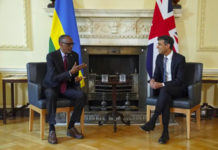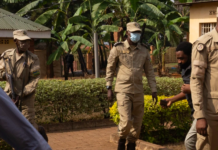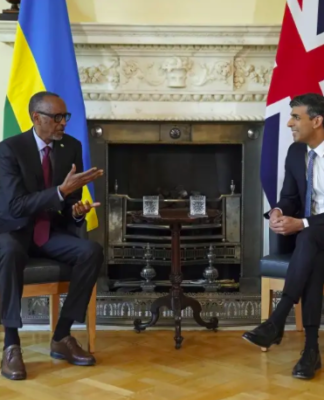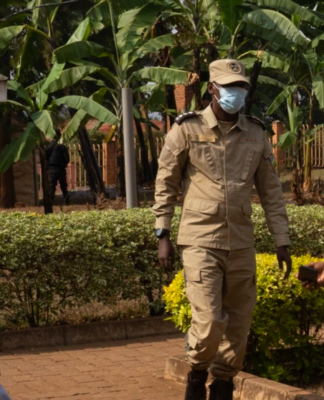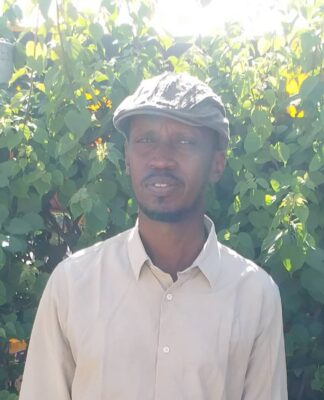The Kanyambo and Byabagamba families announce the untimely passing of Christine Mukankanza Rusagara. At the time of her passing Christine was in London, UK.
As we say our goodbyes to Christine, we also celebrate her life. Christine lived a full life – a mother, a wife, a daughter, a sister, and a comrade to many. She was passionately loved and loved in return with passion.
Christine was born in 1960 as her family was crossing the border between Rwanda and Uganda. That was the time Rwanda exploded into violence, leading thousands to flee into the neighbouring countries. Like fellow Rwandan refugees of that period Christine grew up in exile in Uganda from the 1960s until the mid-1990s when she returned to Rwanda.
Christine did her primary school education at Gashojwa, and her secondary school studies at Immaculate Heart Girls’ High School, Nyakibale at Rukungiri. And then she attended Nkumba College in Entebbe, Uganda.
Christine met her future husband, Frank Rusagara, at the Ministry of Defence, Uganda, where the two were working. There, their love and comradeship blossomed and soon flowered into a lifelong union of the likeminded. They shared a dream of a united and caring homeland that valued its diversity instead of divisionism.
Christine and Frank married in September 1988. Along the way on their joint journey, they brought into this world, five wonderful lives: Veronica Shandari, Che Rwatambuga, Steve Rusagara, Isabella Barakagwira, and Ezra Kanyambo.
When the struggle for returning to Rwanda gathered momentum in 1990, Christine and Rusagara became active on two different but complimentary fronts. Frank was a senior officer in the armed struggle while Christine was on the mobilizing front.
The dream of a caring and democratic Rwanda appeared to be within reach when the genocidal regime was defeated in 1994. Like other returning Rwandans, Christine and Frank found different ways of contributing to building what they thought was a new Rwanda from 1994 onwards. Frank devoted his career to the defence of his homeland subsequently attaining the rank of a General. Frank became a general in another sense – based on his scholarly work on the role of the Rwandan military in national development, he wrote a PhD dissertation.
As the saying goes, behind a successful man is a female soulmate. Christine became homemaker, raising five children.
And then the unthinkable happened. The Rwandan revolution towards a caring and united nation turned into its opposite. The revolution began to eat its own children. Frank became one of the revolution’s children eaten – arrested on false charges and imprisoned for decades. So was Christine’s brother, Tom Byabagamba.
The imprisonment of Frank and Tom took a heavy toll on Christine who was recovering from cancer. The most cruel blow was that she could not talk to her husband in their respective hours of need.
The Rwandan regime saw to it that Frank could not even say goodbye to Christine who was passing away thousands of kilometres away in Britain. Frank was languishing in prison, denied even a single phone call to his beloved wife.
The brave Christine has now left us – bless her heart. We will always remember and cherish her attitude to life – to serve others than herself. Mary Elisabeth Frye’s poem “Do Not Stand At My Grave And Weep” best describes what Christine would say to all of us grieving her passing:
Do not stand at my grave and weep
I am not there.
I do not sleep.
I am a thousand winds that blow.
I am the diamond glints on snow.
I am the sunlight on ripened grain.
I am the gentle autumn rain.
When you awaken in the morning’s hush I am the swift uplifting rush Of quiet birds in circled flight.
I am the soft stars that shine at night.
Do not stand at my grave and cry;
I am not there.
I did not die.
David Himbara

